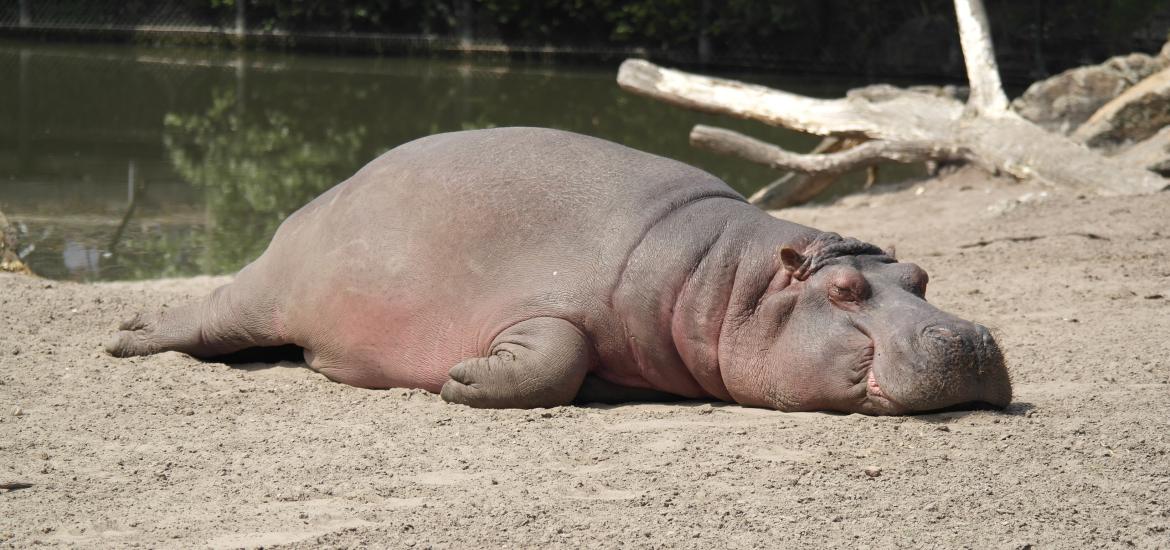
Nothing like Hippo for cooling investor enthusiasm
Ikena is savaged in a bear market after reporting zero remissions in a dose-escalation trial of its lead asset.
Ikena is savaged in a bear market after reporting zero remissions in a dose-escalation trial of its lead asset.

So much for Ikena turning Hippo signalling into a viable oncology strategy. With no remissions to report among the first 26 patients given the company’s lead project, the Tead1 inhibitor IK-930, yesterday’s 68% share price collapse left the group capitalised at just $58m, and standing 92% below its March 2021 IPO price.
Perhaps the severity of investors’ reaction owes something to current market malaise, since the IK-930 data came from early dose escalation. But Ikena itself had built expectations over the Hippo/Yap/Tead pathway, a novel mechanism that only emerged from obscurity at this year’s AACR meeting, and it won’t go unnoticed that the company is already highlighting a separate pipeline asset.
At AACR at least a dozen projects targeting Hippo/Yap/Tead were presented, most importantly the private group Vivace Therapeutics' VT3989, which yielded the first clinical data for a Tead inhibitor. With toxicity looming large over VT3989, however, Ikena claimed to be pursuing a different, more target-specific approach with IK-930.
The difference is that IK-930 is a Tead1-specific molecule, whereas Vivace, in line with most early projects, is working on pan-Tead inhibition. Vivace’s VT3989 was associated with proteinuria, a known on-target effect, as well as liver enzyme elevations and cardiomyopathy in some patients.
Low tox... and low efficacy
Yesterday Ikena reported proteinuria in just three of the 26 IK-930-treated patients, and only at grade 1/2, while grade 3 liver enzyme elevations were seen in two patients said to have had significant liver metastases.
Unfortunately for Ikena, the efficacy was similarly low. The best the group could say was that all seven epithelioid hemangioendothelioma (EHE) patients reported stable disease, with three having tumour shrinkage. But there were no remissions, despite 15 of the total 26 patients being given IK-930 doses within an efficacious exposure range.
Ikena said it was continuing enrolment into dose-escalation cohorts in mesothelioma and meningioma in addition to EHE. However, a next-generation IK-930 formulation is also being evaluated, “to minimise exposure variability”.
Hippo signalling
The Hippo pathway controls cell proliferation and renewal, and its dysregulation is thought to drive the growth of some cancers. Tead is a family of four transcription factors that modulate gene expression in response to Hippo signalling, and transcription is regulated by co-activators called Yap and Taz.
The pathway can be activated by NF2 gene loss of function, and 40% of mesotheliomas are driven by such mutations. It was mesothelioma that Vivace had validated as a target, reporting six partial responses among 42 refractory subjects at AACR. Separately, Yap or Taz fusions are wholly responsible for EHE, a rare type of sarcoma.
The risk now is that, after the promise seen at AACR, Ikena’s disappointment takes the entire field back to square one. The industry pipeline now includes two other clinical projects in addition to VT3989 and IK-930, and is notable for featuring Novartis and Sanofi as big pharma players. Sporos Biodiscovery appears to be one company targeting Tead1/4-specific inhibition, with SPRI-0117.
Yesterday Ikena highlighted a new pipeline asset, IK-595, a MEK-RAF “molecular glue” it plans to take into the clinic by the end of this year. Those who see promise in the Hippo pathway must hope that this doesn’t merely lay the groundwork for a near-term pivot.
Inhibitors of the Hippo/Yap/Tead pathway
| Project | Company | Mechanism | Status |
|---|---|---|---|
| VT3989 | Vivace Theraputics | Pan-Tead inhibitor | Ph1 in NF2-mutated tumours, 6 PRs in 42 mesothelioma pts |
| IK-930 | Ikena Oncology | Tead1-specific inhibitor | Ph1 in solid tumours, 0 responses in first 26 pts |
| IAG933 | Novartis | Yap-Tead interaction inhibitor | Ph1 in mesothelioma and NF2mut & Yap/Taz fusion tumours |
| BPI-460372 | Betta Pharmaceuticals | Covalent pan-Tead inhibitor | Ph1 solid tumour study in China |
| ODM-212 | Orion | Pan-Tead inhibitor | Ph1 in YAP/Tead activated tumours to start H2 2023 |
| TY-0584 | Tyk Medicines | Oral Yap/Tead inhibitor | IND-enabling studies |
| ETS-003 | Etern Biopharma | Yap-Tead interaction inhibitor | Preclinical data at AACR 2023 |
| GH658 | Suzhou Genhouse | Allosteric pan-Tead inhibitor | Preclinical data at AACR 2023 |
| SW-682 | Springworks | Pan-Tead inhibitor | Preclinical data at AACR 2023 |
| BGI-9004 | Bridgene Biosciences | Covalent pan-Tead inhibitor | Preclinical data at AACR 2023 |
| SPR1-0117 | Sporos Biodiscovery | Tead1/4-specific inhibitor | Preclinical data at AACR 2023 |
| K-975 | Sanofi/ Kyowa Kirin | Yap-Tead interaction inhibitor | Preclinical |
| SJP1901 | Samjin Pharmaceutical | Pan-Tead inhibitor | Preclinical data at AACR 2021 |
| KYP-1104 | Samjin Pharmaceutical | Yap-Tead interaction inhibitor | Preclinical data at Triple meeting 2022 |
| Unnamed | Hanmi | Yap/Taz-Tead complex inhibitors | Preclinical data at AACR 2023 |
| Unnamed | Ionis | Anti-Yap/Taz antisense oligos | Preclinical data at AACR 2023 |
Source: OncologyPipeline & scientific literature.
2645













